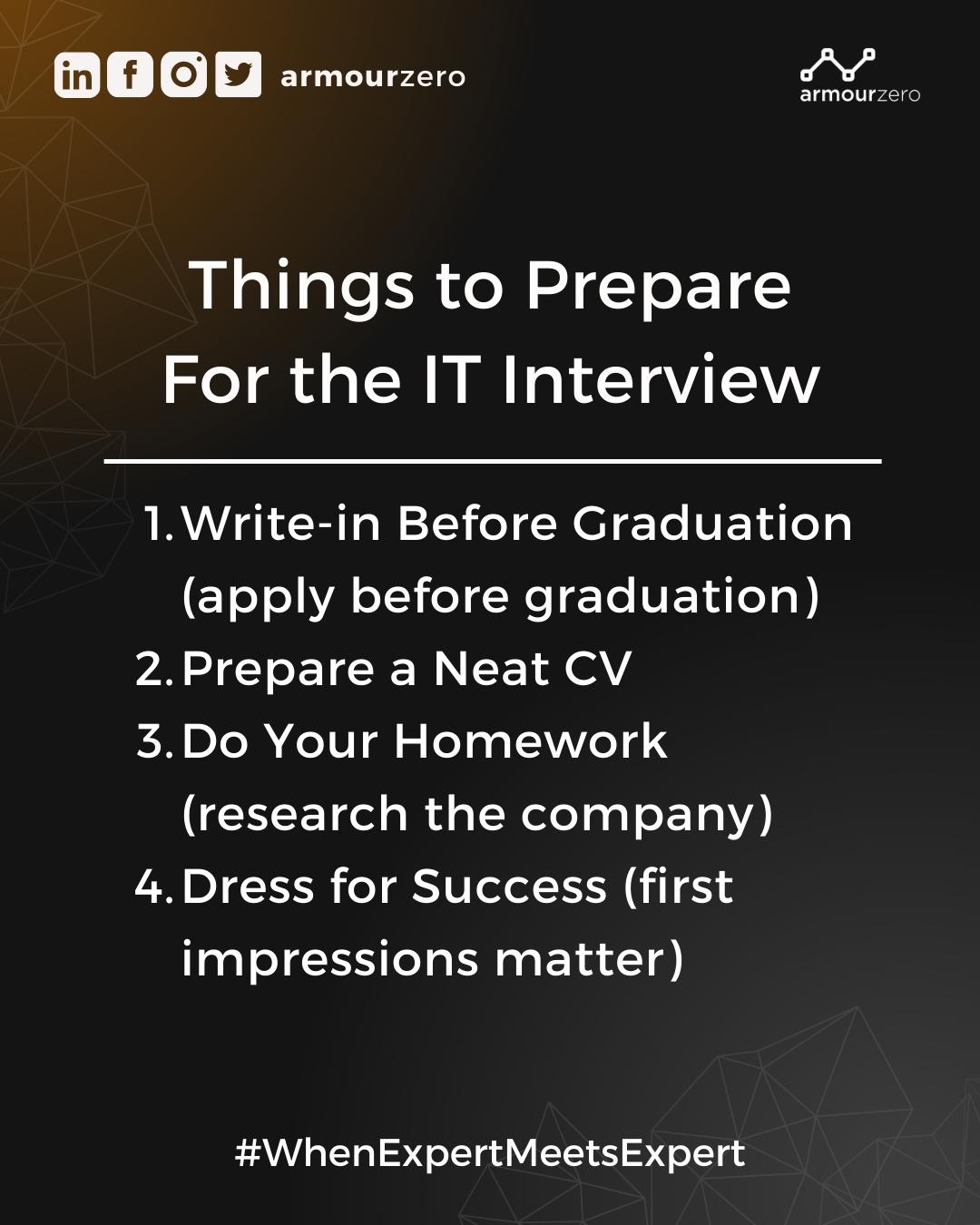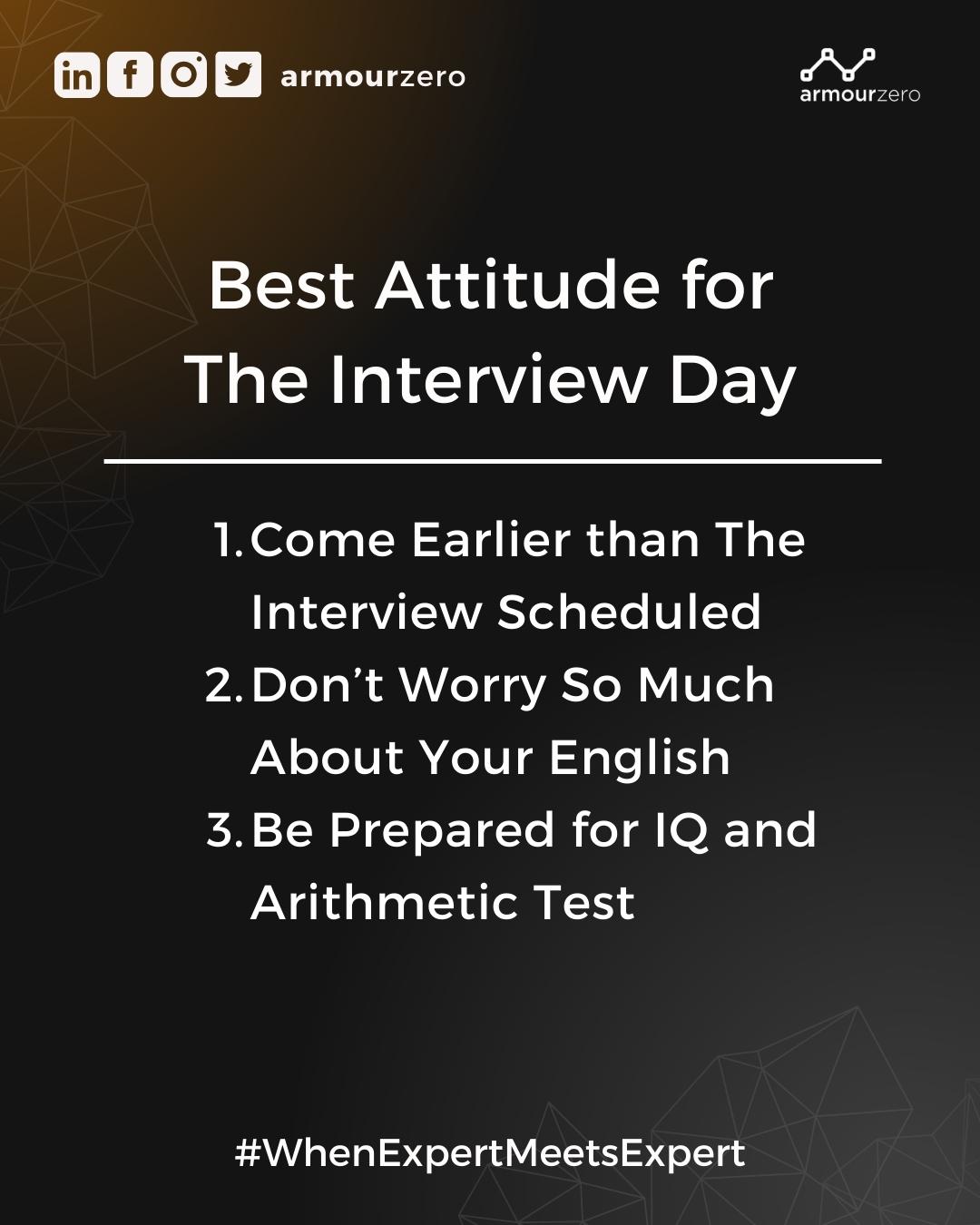Job Hunting Tips
for IT Graduates
- Published: 14 Nov 2022
- By: Ts. Saiful Bakhtiar Osman
- Category: When Experts Meet Experts (WEME)

In my previous 23 articles, the focus was more on general IT issues and was meant to educate the public with layman’s terms for IT. In this article, I would like to share my experience and tips to our next generation of IT professionals – the IT Graduates. The older generations will retire to make way for the new generations to take over.
The job market is indeed very tough nowadays and the competition to secure a job is more challenging than ever. Hence, I hope a few tips that I will share later may assist you to be on the front of those crowds. It is not rocket science, but it needs a lot of determination to make it happen.
Effort Is Required from The Beginning
Use your time at the University to learn and master all the IT Skills that are highly required for the real jobs when you graduate. The problem with most students is they are not serious in studying and wasting time with irrelevant activities. You need to be hands-on, and this can only be achieved with lots of practice and training. Learn and leverage the knowledge of your lecturers and Professors to be the top in your field, regardless of which majoring that you chose.
Nowadays, some companies would test your coding skills before accepting you as their workforce. What value could you bring to the organisation if you are not able to demonstrate that capability? It does not matter if your CGPA is perfect if you are not able to fit in and deliver what real jobs require of you. If you are a Cyber Security student, you need to be aware of all the latest threats in the market through readings and research so that you would be able to convince the hirer to take you onboard.
Things to Prepare For the IT Interview
Some may overlook or did not pay enough attention to the prerequisites, but this is essential for your first step into the real world:

-
Write-in Before Graduation
Do not wait until you graduate to find a job. Make sure you start early even when you are in your final semester. There are a lot of graduates being produced every year. If you start early, chances of being called for an interview would be higher. Imagine that last year’s graduates were 8,000 people, if you write-in early, you are competing with this batch of graduates. If you delay, then by the time you graduate, you are now competing against 8,000 graduates for last year plus your batch which may be of 8,000 graduates as well.
Do not wait for a job advertisement, just write-in to all the companies that you want to join. Sometimes, the company would not advertise an opening because they already have a pool of applicant’s CVs that they could review to fill in the vacancies. Hence, to write-in is to put you into the pool of CVs that may be called for an interview. You may even seek help from your Seniors or relatives to make sure your CV reaches the desired companies.
-
Prepare a Neat CV
With the spellcheck and auto-correct features in Words, I am dumbfounded that there are still graduates who send to us CVs with typos and wrong spellings. This is not acceptable. It shows either you couldn’t care less to prepare a good CV, or you are not meticulous enough to do a thorough check of your work. It gives an early bad impression to the hirer.
A CV is your calling card and the introduction of yourself to a stranger. Please arrange your details in a structured and ascending historical way so that it is easy for the hirer to read and review your application. Usually, the hirer would receive hundreds or even thousands applications a day and their attention is not long. You need to capture their attention within the first page itself for you to get higher chances of being considered for an interview.
-
Do Your Homework
Please have the courtesy to do some research about the company you are applying to. It will make you look bad and unprepared if you are unable to answer basic things about the company. Making a prior background check demonstrates your eagerness to be part of the company and gives the impression that you are serious about getting the job.
However, some multinational companies might have a different approach, like my interview with SHELL IT back in 2006, whereby it was them who took 30-minutes to explain about their company and the salary package that I am getting should I join them. It was a different experience altogether because you were treated like the company was the one who needed you, and not the other way around.
-
Dress for Success
No harm dressing the best for your interview session. It does matter how the first impression when the interviewer sees you walking into the room. Be aware of your attire, a corporate shirt with a tie, but wearing a sports shoe or sneakers would be a ‘No’. Putting on a tie with floral patterns is also a turn off and not appropriate for corporate culture.
Best Attitude for The Interview Day
If you managed to secure an interview, this would be a golden chance for you to shine. Be prepared for it and do your best. Here are some things you may need to take note:
-
Come Earlier than The Interview Scheduled
Many people always advise us to come early for an interview, which is at least 1 hour or so. The reason being is to avoid you feeling restless and panic should any unforeseen problems happen. Your car may break down, traffic jams, LRT operations failure, etc. You will have ample time to address the situation should it happen.
What I want to add to the above ‘usual advice’ is to come 1 hour (or more) early, BUT only enter the interview location 30 minutes before the interview. 30 minutes will be sufficient for you to fill in all the required forms or anything.

This is because many companies do not like people ‘flooding’ their reception area. They might think that you have no respect for time. This rule only applies for scheduled interviews. For an open interview, crowds are something normal and have already been anticipated.
Therefore, if they ask you to come at 3.00pm, please don’t come at 2.00pm. You must understand that the company has made the necessary arrangements to ensure a smooth interview process. That is why only a certain number of candidates are entertained at a certain allocated session. By coming too early, you are becoming a liability to them and an ‘eye sore’ at the reception area. Respect the time unless you are instructed by them to be 1 hour early. If not, then 30 minutes would be just nice.
-
Don’t Worry So Much About Your English
Yes, the employer is not hiring an English teacher, so don’t worry so much about your English. What the employer is looking for is the way you express your mind, convey your thoughts, construct your argument as convincing as possible and how mature you are in responding to their questions. This is what most Malay candidates lack.
Usually, some Malay candidates took quite some time in answering because in their heads they are trying to translate their thoughts into English. They are also trying to get the best English words for that matter. It is quite normal since they are not using English for daily conversations.
It is not so much about how candidates failed to provide excellent ideas, but the time taken to convey the message would be the main issue. The delay in responding to questions will give the impression to the interviewer that you are not confident enough or hesitated to answer. You may have plenty of bright ideas and top-class arguments but if you are wasting time looking for the right words, then it would become a disadvantage to you.
-
Be Prepared for IQ and Arithmetic Test
Some companies, mostly Banks and Manufacturing, like to set an IQ test for the candidates. Don’t worry, it is not for them to evaluate how smart you are but more to assess how you are doing under pressure.
- They want to assess the way you handle pressure – How many questions you can answer correctly in a limited time frame and in that stressful environment.
- They want to assess what kind of worker you will become – Are you carelessly trying to answer all questions but failing in most questions in the attempt to do that? Honestly speaking, no one ever managed to finish all the 100 questions in 1 hour or half an hour, so don’t put too much pressure on yourself. Answer the questions carefully but quickly. The number of questions does not count but the number of the correct ones will be your benchmark.
- They want to quickly eliminate the non-potential workers – It is quite fair considering the number of candidates that turned up for the interview which is usually very high. This IQ and Arithmetic Test would be the qualifying round for you to advance to the next stage.
Some Tips from My Experience
I have gone through quite a lot of interviews and tests. Some of the things that I am sharing may still be in practice and some may not. Therefore, just read through the following for your knowledge:
1. Number Crunching Test
I went for an interview back in 2002 in one of the Japanese electrical manufacturing companies. As for the test, every candidate was given 1 sheet of paper containing simple numbers 1 to 9. There were 50 numbers in each row and there were 100 rows.
The instruction was very simple: add the 2 numbers side by side, but only write down a single number (1+2 = 3 write down 3, if 9+8 = 17, just write down 7). The exam was timed, and for every row they gave 30 seconds only. When the 30 seconds time was up, they would shout “NEXT!” to answer the next line.
Interestingly enough, candidates were very eager to answer at the beginning and started to slow down as the test progressed to the 30th or 40th row. Mainly it’s because your hands are already tired and you can no longer think straight.
At the end of the exam, what the HR people did in front of us was that he took a marker pen and started to link the lines (last answered in row 1 down to row 100). Eureka! As for those who already slowed down halfway, they would surely get a declining graph. Interesting, isn’t it?
As for myself, I managed to score because my Business Math lecturer back at the University, Prof. Razak (thanks dear Prof) had already shared during his lecture on how to tackle this kind of test. What you must do is, 1) start slow, take your time 2) then only start answering aggressively towards the end. The philosophy behind it was:
- People are expected to perform better (improve) when doing repetitive/routine work (answering rows 1 to 100 requires the same method of calculation).
- People is expected to maintain a good performance as time progresses (if you show declining traits, it gives the impression whether you are a quitter or easily lose motivation)
- It is normal for people to get very enthusiastic during the early days of employment, and start losing momentum as they progress. This was shown by the candidates aggressively answering the questions at the beginning and slowed down towards the end.
2. Cue Card Role Play
This one was an interview with a multinational shipping company. There were 3 levels, 1) You must pass the written test, 2) You must pass the cue card role play, 3) Then only comes a formal interview.
What I wanted to highlight is the cue card role play. You are given 1 situation, then you must act (role play) to handle the issue. If you succeeded with the first card (first scenario), a second card would be given with more challenging problems. However, you would still need to maintain your role.
In my scenario, I was a Factory Manager of a chemical company. People around the area started getting sick and they blamed my factory for causing the problem. My factory had all the Good Manufacturing Practice (GMP) in place, and we did not dispose of any harmful material into the drain.
Card 1: Villagers send their representative to talk to me and demand my company to pay for all their medical expenses.
Card 2: The “green peace” came rallied in front of my factory. They did not want to move until I met their representative. All of them blocked any vehicle from entering the building by laying down on the road.
Card 3: The Y.B. (State lawmaker) interfered and came with the Director of the State Health Department. They threatened to close my factory for a week and carried out an investigation.
Card 4: A disgruntled employee of my factory was sacked for a disciplinary problem. As revenge, he made up stories that my factory was polluting the drain with harmful material. The media is now covering the story.
Well, to simply put it, you need to defend your company at all costs! In fact, it was not like your company was involved in any illegal operation or anything. This was created more towards ‘crisis management’ and how you were handling external stakeholders.
My tips on this are not to just sit there and defend bluntly. Try to create something that was not mentioned in the cards i.e., your company had already gotten the approval from the Department of Environment or in compliance with the Environmental Quality Act 1972. Be creative, there is no right or wrong answer.
After they were convinced with you, then only the formal interview (Level 3) would begin. This cue card was fun though, looking at the interviewer’s face when you refute their facts with made up facts which are not mentioned anywhere in the cards.
Signing Off
This will be my final WeMe article, and I will be taking a long break. I hope that all my readers will gain some knowledge or learn new things from what I have shared to date. It has been an honour to become a regular columnist for this When Expert Meets Expert (WeMe) tech blog. My thanks to the Editorial Team and ArmourZero team for making all of this happen.
Read more here for When Expert Meets Expert articles by Ts. Saiful Bakhtiar Osman.
Share this post
Related Posts

Cybersecurity: Achieving the ‘Hole-in-One’ of Digital Defence
- 07 Nov 2023
- By:Bernadetta Septarini
- Category: When Experts Meet Experts (WEME)
Discover the connection between cybersecurity and sports with Tony Smith, Regional VP at WithSecure. Let’s achieve the ‘Hole-in-One’ of Digital Defense.

Beware of Scare Software aka Scareware
- 21 Nov 2022
- By:Eugene Chung
- Category: When Experts Meet Experts (WEME)
What is Scare Software or Scareware? Learn more about this Social Engineering technique that aimed to scare the victim with ArmourZero mentor Eugene Chung.

Tips to Successfully Sell a Credible Cybersecurity Solution
- 07 Nov 2022
- By:Eugene Chung
- Category: When Experts Meet Experts (WEME)
How do Cybersecurity sales convince prospects to trust their services and/or products? Learn more about it from ArmourZero’s mentor and expert Eugene Chung.

IT Leadership – A Tribute to My Mentor
- 31 Oct 2022
- By:Ts. Saiful Bakhtiar Osman
- Category: When Experts Meet Experts (WEME)
This article is a tribute to the late Encik Mohd Izzanee Idris, a Boss and Mentor that taught IT Leadership for ArmourZero’s mentor Ts. Saiful Bakhtiar.

